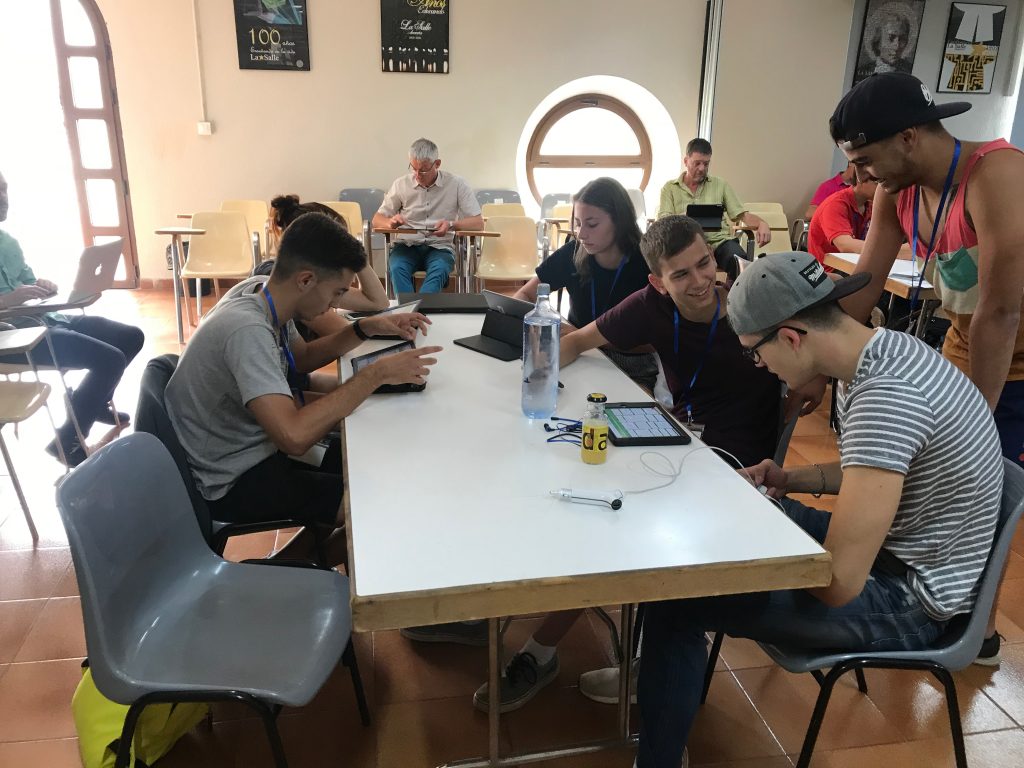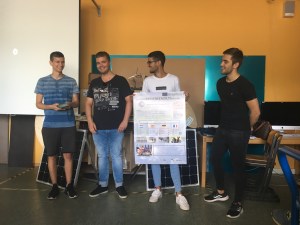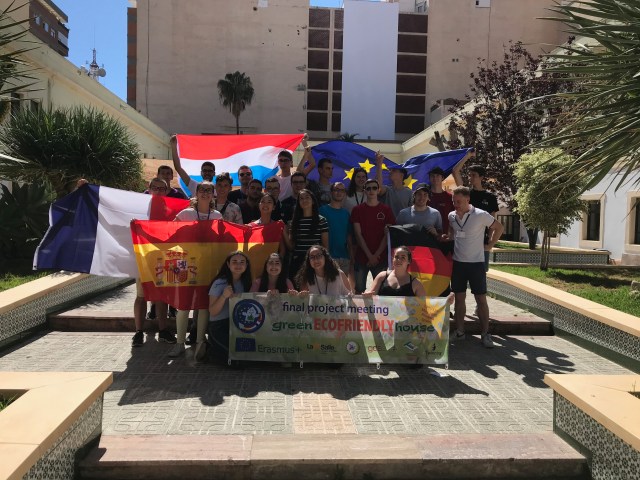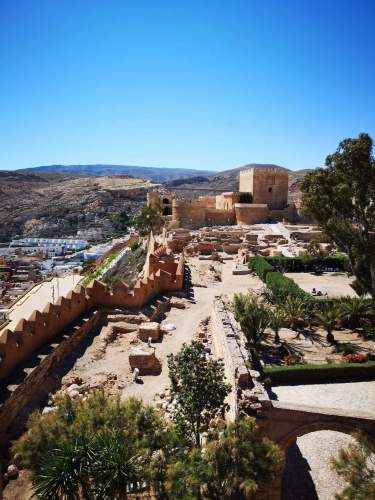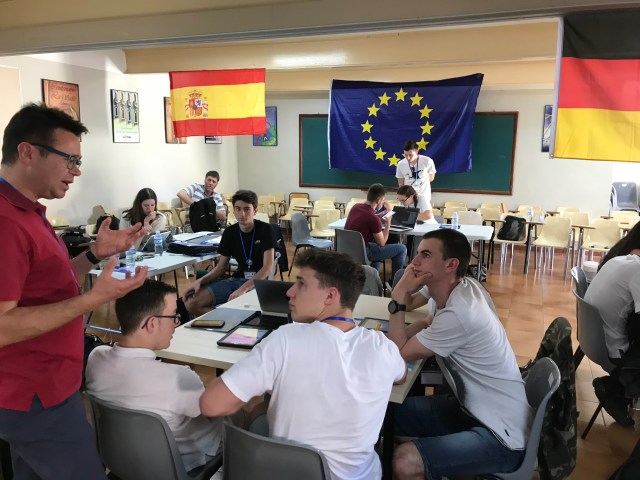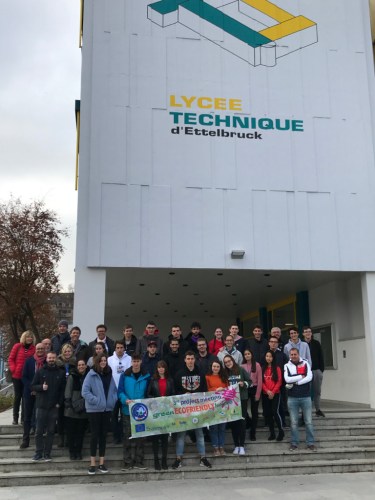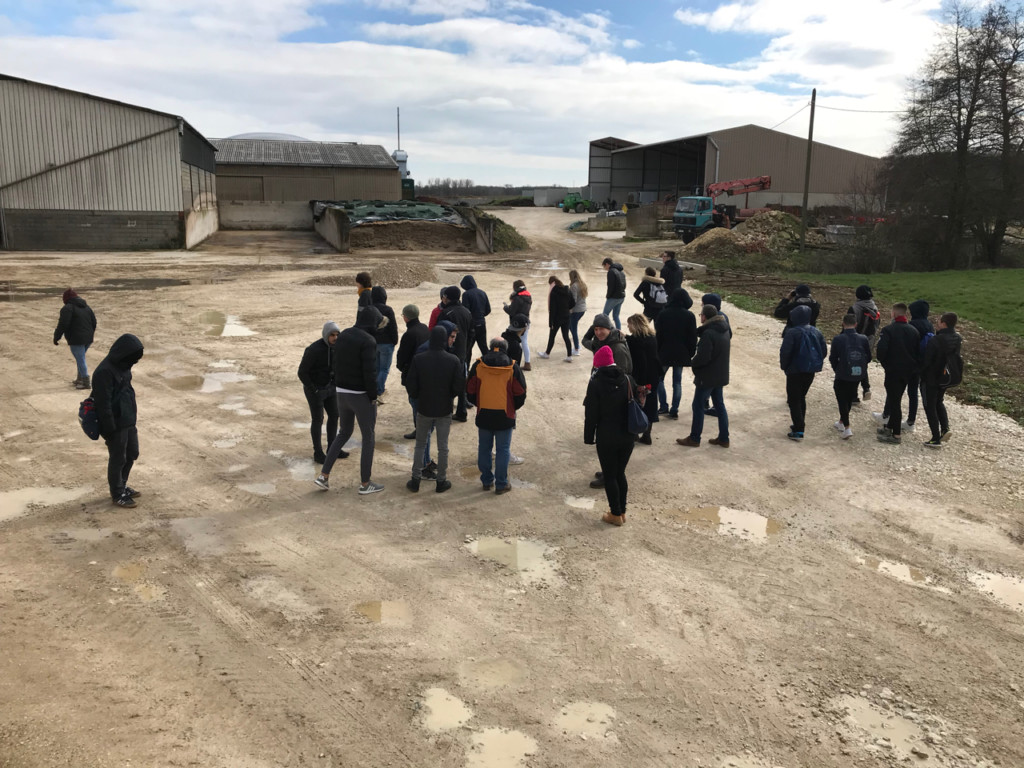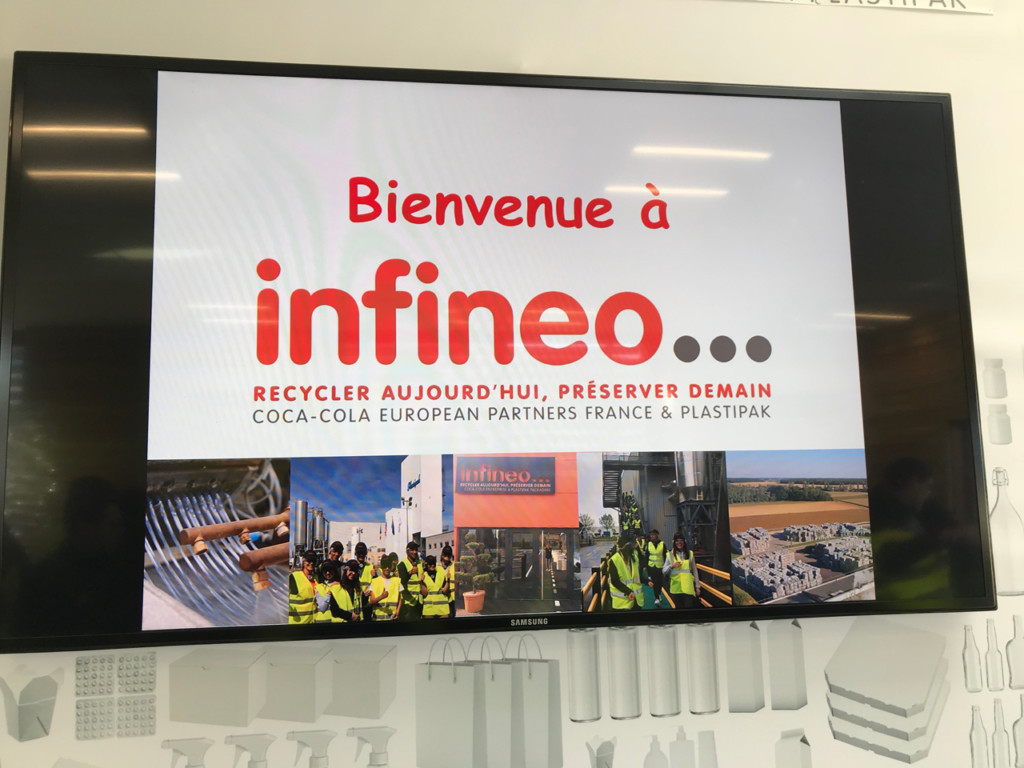Project summary greenECOFRIENDLYhouse
Four schools with different profiles (vocational and general) from Germany (Gottlieb-Daimler-Schule 2, Sindelfingen), France (Lycée Hippolyte Fontaine, Dijon), Spain (Colegio La Salle Virgen Del Mar, Almeria) and Luxembourg (Lycée Technique d´Ettelbruck) are going to work on the topic “eco friendly greenhouse”.
The cultivation of vegetables within the EU is mostly concentrated in the southern European countries. Almeria is due to EU subsidation, currently one of the most significant fruit- and vegetable producer in Europe, it`s agricultural area spreading over 380 square kilometres. The climate and technological conditions allow for up to five harvests a year. The mass production of fruit and vegetables in greenhouses leads to numerous environmental problems: retreat of phreatic water reserves/draughts, intensive deployment of pesticides, higher usage of plastics.
Countries with a comparable climate (e.g. Italy, Morocco and Israel) are also increasingly concentrating on vegetable cultivation and are likewise faced with the same problems, which further amplifies the projects importance.
France, Germany and Luxemburg, as bulk buyers / consumers of cheap fruit and vegetables grown in the region of Almeria, support this growing environmental Problem. All EU-citizens and in extension all participants of this project are -especially in reference to the EU-Strategy 2020- responsible for sustainable actions concerning the fruit and vegetable agriculture. Another EU priority within the framework of Strategy 2020, is the digitalisation of all viable sectors, amongst others also the digitalisation of education. (The German government passed the degree of digitalisation cooperation in the end of 2016)
In 2015 the UN declared within the frameworks of Agenda 2030 for sustainable development seventeen Sustainable Development Goals (SDG). The twelfth goal refers to responsible consumption, which implicates sustainable Consumption and Production measures. The UN project Education for Sustainable Development (BNE) is observed in all participating countries and hence leads to various Measures. In Baden-Würtemberg this educational initiative leads to the integration of BNE as subject comprehensive guideline for instance.
Based on the assumption, that in the Almeria region with roughly 3000 hours of sun per year, about 38 square kilometres of the landscape are covered with greenhouses made from plastic foil, which produce ca. 80 percent of Spain’s agricultural yield, the students are to create a concept, that can improve this situation based on environmental standards. This includes the topics recycling of plastics, providing and treatment of water, power gain from biomass and ecological architecture. During this process the students will create functioning models of recycling of plastics, sea water treatment through desalination, production of biogas for climate automation within a greenhouse. For the dissemination and publication of the finished concept, info booths will be created at the end of the project, which will serve to get in contact with interested parties and activists during events.
An insight into scientific issues and methodology as well as first hands-on experiences are another important objective of this project. As the participating schools have recently introduced tablets in their classrooms, they are going to develop teaching methods and they are going to exchange teaching tools.
As students from various fields (metal engineering, electrical engineering, environmental technology and general education) are going to cooperate, the previously mentioned transdisciplinarity of the project can be realized. The wide-ranging expertise of the supervising teachers/key persons in the project make possible the development of valuable project results.
Transnational mobility is an important part of the project: four short-term exchanges are planned in the course of the two-year project. During the transnational project weeks, the students are going to study various aspects of an eco friendly agriculture (plastic recycling, water treatment and supply, biomass etc.), which will be followed by the creation of learning modules and quizzes for the respective issues. Learning sessions at research institutes and debates with non-partisan political organisations are going to be implemented as essential activities. Throughout the project, the project members have to communicate, exchange ideas, results and pictures/videos online, on the eTwinning platform created for the project (cf. twinspace.etwinning.net/5706/home).
